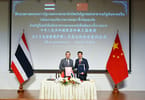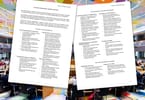Demographic change will have major implications for the tourism sector over the coming decades but also presents important opportunities. This is among the central findings of the recently published UNWTO/European Travel Commission (ETC) report on “Demographic Change and Tourism.” The report sets out the main demographic trends worldwide and in major current and emerging source markets and describes how destinations and the private sector can make the most of these in terms of product development and marketing.
Major demographic trends at the global level – rising populations, increased life expectancy, urbanization, migration, changing family structures – present fresh challenges for the tourism sector. Demographic change will impact upon the types of tourists that will travel, where they originate from, where they travel to, the types of accommodation they require, and the activities they engage in while away.
Demographic Change and Tourism provides a comprehensive analysis of the major demographic trends through 2030 – by which time the world’s population is forecast to reach 8.3 billion. It outlines the impact these trends will have on tourism demand and travel behavior overall and analyzes how destinations and companies can best adapt in order to become increasingly competitive in the marketplace.
According to the report, visitor’s profiles and preferences will become increasingly fragmented, and destination’s competitiveness will depend on their ability to develop and market tourism products to an aging, multi-ethnic population, structured into a multi-generational families population growth, and increased life expectancy, for example, will radically challenge current assumptions of ageing for tourism. Younger tourists who are still working full-time may look to relax on holiday, while older tourists with more time on their hands and a “younger” outlook may go on holiday to try new activities.
The report was officially presented by UNWTO and ETC at the recent Seminar on Demographic Change and Tourism (September 17 in Vienna, Austria). The content of the study was used as a basis for the seminar, which sought to achieve a better understanding of current and future demographic changes and debate how to maximize potential opportunities for the tourism sector.
RELEVANT LINKS:
Demographic Change and Tourism is available for purchase, in hardcopy, and electronic format, through the UNWTO e-library: www.wtoelibrary.org/content/q11864/?p=b4005a27215f48599c0fa260661dbe69&pi=0
Further information on the International Seminar on Demographic Change and Tourism: http://www.modul.ac.at/tourmis
WHAT TO TAKE AWAY FROM THIS ARTICLE:
- According to the report, visitor's profiles and preferences will become increasingly fragmented, and destination's competitiveness will depend on their ability to develop and market tourism products to an aging, multi-ethnic population, structured into a multi-generational families population growth, and increased life expectancy, for example, will radically challenge current assumptions of ageing for tourism.
- The content of the study was used as a basis for the seminar, which sought to achieve a better understanding of current and future demographic changes and debate how to maximize potential opportunities for the tourism sector.
- It outlines the impact these trends will have on tourism demand and travel behavior overall and analyzes how destinations and companies can best adapt in order to become increasingly competitive in the marketplace.






















